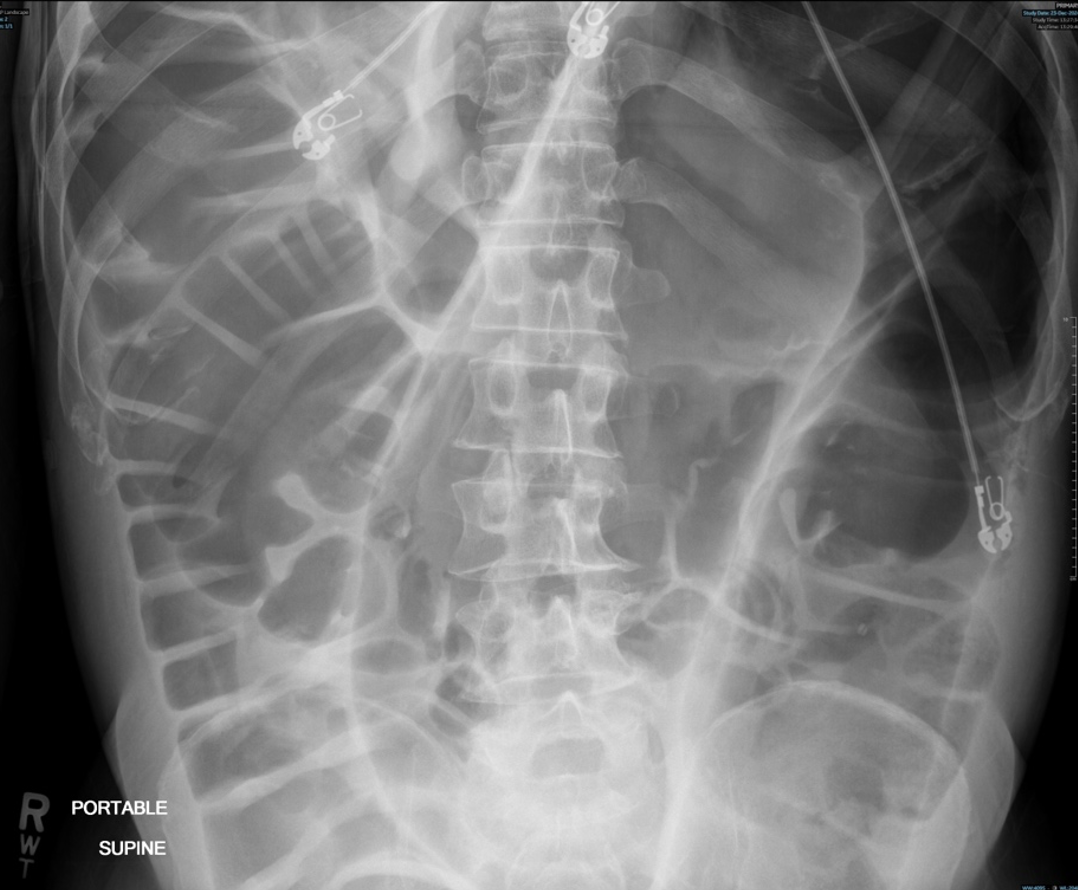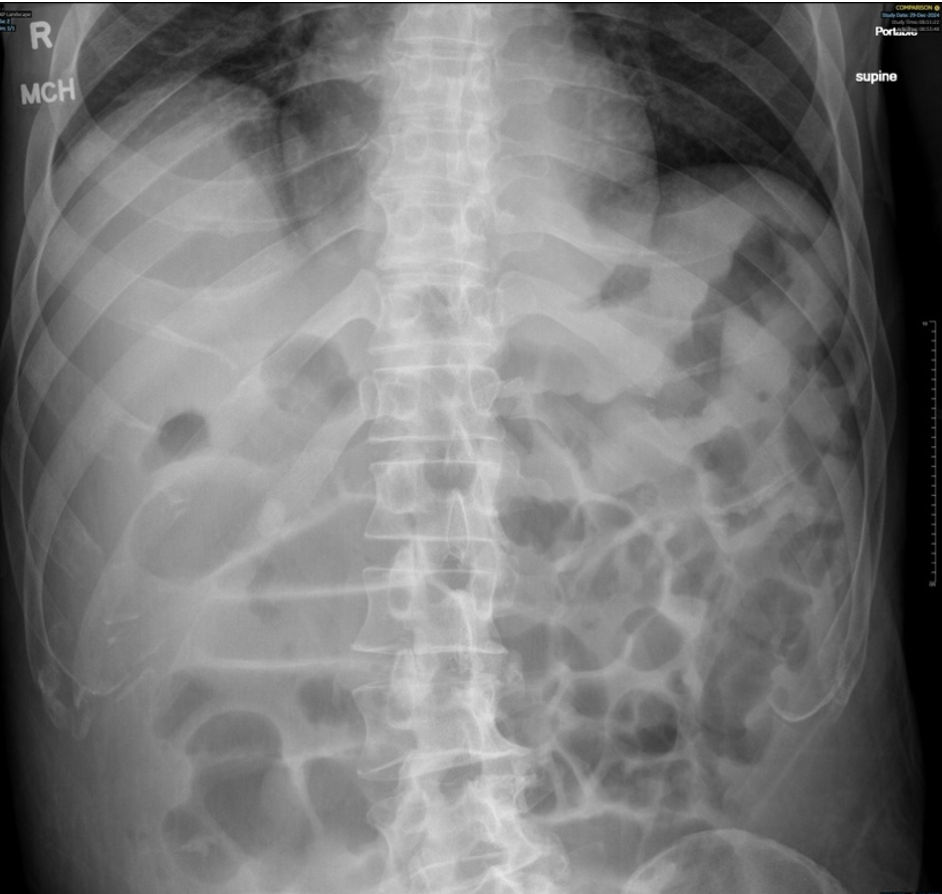Sunday Poster Session
Category: Colon
P0351 - When Systems Collide: A Unique Case of Ogilvie Syndrome With Endocrine and Neurologic Comorbidities
.jpg)
Husayn F. Ramji, MD (he/him/his)
Tulane University School of Medicine
New Orleans, LA
Presenting Author(s)
1Tulane University School of Medicine, New Orleans, LA; 2Tulane School of Medicine, New Orleans, LA; 3Tulane University, New Orleans, LA
Introduction:
Acute Colonic Pseudo-Obstruction (ACPO), also known as Ogilvie Syndrome, is a rare disease process often seen in patients with many comorbidities. We present a unique case of ACPO in a patient with a past medical history of Multiple Sclerosis (MS), Type 2 Diabetes Mellitus (T2DM), and hypothyroidism who presented in shock and diabetic ketoacidosis.
Case Description/
Methods: A 61-year-old male with past medical history of Multiple Sclerosis (MS), Type 2 Diabetes Mellitus (T2DM), and hypothyroidism presented with chief complaint of abdominal pain after being found down at home. On arrival, he reported a 10-day history of worsening abdominal distension, left sided weakness, and poor oral intake. He reported some nausea, bilious emesis, and ability to pass gas, but no bowel movements in over a week. He further denied hematochezia, hematemesis, or diarrhea. Beyond getting his monthly Kesimpta (Ofatumumab, Novartis Pharmaceuticals, Basel, Switzerland) injection in the prior week, he had no new medications, no recent illnesses, operations, no sick contacts, and no changes in diet prior to the worsening abdominal pain. Although stroke workup was negative, imaging revealed a concern for a sigmoid volvulus without perforation and bowel dilation up to 13.36cm, with multiple labs abnormalities. The patient was admitted to the Intensive Care Unit (ICU) for management of shock and DKA, and Gastroenterology was brought on board. While in the ICU, patient underwent an emergent colonoscopy at bedside followed by colonic decompression tube placement. After no improvement in abdominal distention after resolution of DKA, shock, two days of a polyethylene glycol drip, and no signs of mechanical obstruction, ACPO moved up the differential. The patient responded after two 2mg doses of neostigmine, with 3.4L of watery stool output within the first day of neostigmine. Subsequent imaging revealed complete resolution of bowel distension.
Discussion: This case report exemplifies how the complex interactions between different conditions can lead to the development of ACPO. In our patient's case, it was likely the interplay between baseline levels of neurogenic bowel dysfunction in the setting of MS, diabetes, and hypothyroidism, and acute episodes of bowel dysmotility in the setting of shock, DKA, and the acute metabolic derangements that occur secondary to that. This could explain why an additional dose of neostigmine was required. Nevertheless, this is a great example of how ACPO can develop "when systems collide."
Figure: Figure 1: KUB on Day of Admission
Figure: Figure 2: KUB two days after Neostigmine
Disclosures:
Husayn Ramji indicated no relevant financial relationships.
Stephanie Mrowczynski indicated no relevant financial relationships.
Anveet Janwadkar indicated no relevant financial relationships.
Dominique Cross indicated no relevant financial relationships.
Matthew Alias indicated no relevant financial relationships.
Sarah Glover: Janssen – Consultant.
Husayn F. Ramji, MD1, Stephanie Mrowczynski, BS, MD2, Anveet Janwadkar, MD2, Dominique Cross, DO, MPH1, Matthew B.. Alias, MD, MS3, Sarah Glover, DO3. P0351 - When Systems Collide: A Unique Case of Ogilvie Syndrome With Endocrine and Neurologic Comorbidities, ACG 2025 Annual Scientific Meeting Abstracts. Phoenix, AZ: American College of Gastroenterology.
